| “No Jew ever called God abba, yet the evangelists record that Jesus always called God abba, ‘my Father’ (except for the cry from the cross, Mark 15.34).”
—Joachim Jeremias (emphasis original)[14] |
At first glance, the title of this article might seem to pose a preposterous question. “Of course Jesus called God ‘Abba,’” one might exclaim. “It says so in the New Testament!” That “Abba” was Jesus’ favorite term for addressing God is often taken for granted by laypersons and scholars alike. Some scholars have asserted that whenever Jesus addressed God as “Father” in the Gospels, this always goes back to an original “Abba.”[15] Moreover, Jesus’ use of “Abba” in prayer has been cited as evidence that Jesus attained a level of intimacy with God that was not possible within the confines of Second Temple Judaism.[16] It has even been claimed that calling God “Abba” would have been considered offensive, and perhaps blasphemous, to Jesus’ Jewish contemporaries.[17] At other times, scholars have pointed to Jesus’ use of “Abba” as evidence that Jesus spoke Aramaic rather than Hebrew.[18] All of this is a heavy load for one little word to bear, and it is for this reason that it makes sense to re-examine the evidence regarding Jesus’ use of the term “Abba.”
The Evidence for Jesus’ Use of “Abba”
In the past, scholars who defended the notion that Jesus always used the term “Abba” when addressing God as “Father” usually made their case in the following manner: In the first place, scholars claimed that the form אָבִי (’āvi, “my father”), which was the usual way for addressing one’s father in Biblical Hebrew (cf., e.g., Gen. 22:7), had become obsolete by Jesus’ time, having been completely replaced by the form אַבָּא (’abā’, “father”).[19] Thus, if Jesus had wanted to address God as “Father,” either in Hebrew or Aramaic, there was no alternative but to call him “Abba.” In the second place, scholars cited Jesus’ prayer in Gethsemane (where Jesus is reported as saying, “Abba, Father, all things are possible for you” [Mark 14:36]) as proof positive that Jesus did, indeed, call God “Abba.” Finally, these scholars traced the practice of calling out to God as “Abba, Father” among the Greek-speaking non-Jewish believers (Rom. 8:15; Gal. 4:6) back to Jesus. These scholars argued that since “Abba” was a foreign word, the only reason why these non-Jewish Greek-speakers would call God “Abba” was that they did so in imitation of Jesus, whose practice of addressing God in this way had transformed “Abba” into a sacred word.[20]
These arguments would be formidable if they were factual. Upon closer examination, however, we discover that these arguments are at best founded on baseless assumptions, and at worst are wholly erroneous. We will examine these arguments in reverse order, proceeding from the least egregious to the most.
Premium Members and Friends of JP must be signed in to view this content.
If you are not a Premium Member or Friend, please consider registering. Prices start at $5/month if paid annually, with other options for monthly and quarterly and more: Sign Up For Premium
Check out these recent JP articles:
- Like Every Sparrow Falling: The Symbolism of Sparrows in a Saying of JesusThe multivalent image of the sparrow in ancient Jewish thought made it a useful vehicle for conveying messages about human and divine relationships.
- Better Than the Day of Birth: Reflecting on David Flusser’s Interpretation of the Love Commandment on the 25th Anniversary of His PassingI regard the twenty-fifth anniversary of David Flusser’s passing not solely as a day of loss, but also as the day that gave him to the world.
- 25 Years Since David Flusser’s PassingProfessor Serge Ruzer shares his recollections of Israeli scholar David Flusser on the twenty-fifth anniversary of his death.
- The Discomposure of Jesus’ Biography (Reboot): A Modification to Lindsey’s Conjectured Stages of Synoptic TransmissionHow did the Hebrew biography of Jesus disintegrate into the isolated pericopae that make up the Synoptic Gospels?
- Was the Hemorrhaging Woman Jesus Healed Named Rebekah?Is it possible to retrieve the name of the woman who touched Jesus’ tzitzit?
- Did Jesus Raise Jairus’ Daughter from the Dead?Should readers give more weight to the bystanders’ impressions or to the words Jesus said?
And check out these items from the JP Bookstore:
-
Jesus’ Gospel: Searching for the Core of Jesus’ Message
$12.95 Price incl. tax: $12.95 Add to cart -
A Hebrew Translation of the Gospel of Mark
$0.00 Price incl. tax: $0.00 Add to cart -
Treasures New and Old (Matt. 13:52): Celebrating 35 Years of Jerusalem Perspective
$24.95 Price incl. tax: $24.95 Add to cart -
The Kingdom of Heaven by Joseph Frankovic
$0.00 Price incl. tax: $0.00 Add to cart
- [1] See Jeremias, Prayers of Jesus, 59-60. In the writings of Theodoret of Cyrus (fifth cent. C.E.), for example, we read the following comment on Paul’s Epistle to the Romans:
Ἐν ᾧ κράζομεν Ἀββᾶ, ὁ Πατήρ. Καὶ γὰρ τὴν μυστικὴν εὐχὴν τῷ Δεσπότῃ προσφέροντες, Πατέρα καλεῖν αὐτὸν προσετάχθημεν, καὶ λέγομεν· Πάτερ ἡμῶν ὁ ἐν τοῖς οὐρανοῖς. Τὸ δὲ, Ἀββᾶ, προστέθεικε, τὴν παῤῥησίαν τῶν καλούντων διδάσκων. Τὰ γάρ τοι παιδία, πλείονι παῤῥησίᾳ κεχρημένα πρὸς τοὺς πατέρας (οὐδέπω γὰρ τελείαν τὴν διάκρισιν ἔχει), συχνότερον πρὸς αὐτοὺς τῇδε κέχρηται τῇ φωνῇ.
...in whom we cry, Abba, Father [Rom. 8:15]: when offering the mystical prayer to the Lord, we are bidden to call him Father, and say, “Our Father, who art in heaven.” Now, he inserted Abba to bring out the confidence of those who call: children, of course, addressing their parents with greater confidence (not having complete discernment, you see), frequently employ this word. (Theodoret of Cyrus, Commentary on the Pauline Epistles, on Rom. 8:15)
(Translation according to Robert Charles Hill, Theodoret of Cyrus: Commentary on the Letters of St. Paul [2 vols.; Brookline, Mass.: Holy Cross Orthodox Press, 2001], 1:91.)
According to the translator of this passage, “Theodoret, for whom Syriac (i.e., a dialect of Aramaic) is his mother tongue, speaks of children generally employing this term [i.e., 'Abba'—JNT]. He does not give color to the view...that it survives from an Aramaic form of the Lord’s Prayer” (Hill, Theodoret of Cyrus, 1:149). ↩
- [2] On the continuing importance of Aramaic in the eastern regions of the Roman Empire, see Randall Buth, “Aramaic Language,” in Dictionary of New Testament Background (ed. Craig Evans and Stanley Porter; Downers Grove, Ill.: InterVarsity, 2000), 86-91; Peter J. Tomson, ‘If this be from Heaven…’ Jesus and the New Testament Authors in their Relationship to Judaism (Sheffield: Sheffield Academic Press, 2001), 31. ↩
- [3]
Some Examples of “Avi” in the Dead Sea Scrolls
ועתה מבקש [אני אות]כה אבי אשר תשלחני והלכתי אל אבי
And now I beseech you, my Father [“Avi”], that you send me and I will go to my father [“Avi”].... (4QTobe [4Q200] 4 I, 4-5)
[ויאמר] לו אל תירא אבי
And he said to him, “Do not be afraid, my Father [‘Avi’].” (4QTobe [4Q200] 5 I, 3)
כיא אבי לא ידעני ואמי עליכה עזבתני כי אתה אב לכול בני אמתכה
For my father [“Avi”] did not know me and my mother abandoned me to you, but you are father to all the sons of your truth. (1QHa XVII, 34-35)
יקרא אל אל גבור להושיעו מידם ויאמר אבי ואלהי אל תעזבני ביד הגוים
He cried to the God of might to save him from their hand. And he said, “My Father ['Avi'] and my God, do not abandon me in the hand of the Gentiles.” (4Q372 1 I, 16)
Some Examples of “Avi” in Rabbinic Literature
מכות אלו גרמו לי ליאהב לאבי שבשמים
These injuries caused me to be loved by my father [“Avi”] who is in heaven. (Mechilta de-Rabbi Ishmael, Baḥodesh chpt. 6 [ed. Lauterbach, 2:325]) (Jeremias was aware of this example, but he considered “My father who is in heaven” to be a fossilized form that did not represent colloquial speech. See Jeremias, Prayers of Jesus, 22-23.)
כיון שמת משה היה יהושע בוכה ומצעק ומתאבל עליו במרד והיה אומר אבי אבי רבי רבי אבי שגדלני רבי שלמדני תורה
Upon the death of Moses, Joshua was weeping and crying and mourning over him with bitterness, and he was saying, “My father ['Avi']! My father ['Avi']! My master! My master! My father ['Avi'] who raised me! My master who taught me Torah!” (Sifre Deut. §305 [ed. Finkelstein, 327])
יאבד יום אולד בו והלילה אמר הורה גבר. יאבד יום שבא אבי אצל אמי ואמרה לו אני הרה
May the day on which I was born perish, and the night when it was said, “A male baby is born” [Job 3:3]. May the day perish when my father [“Avi”] came to my mother and she said to him, “I am pregnant.” (Avot de-Rabbi Natan, Version A, 37:13 [ed. Schechter, 112])
מהו ויאמר עשו בלבו אמר קין הרג אחיו ולא עשה לו הקב″ה כלום וסוף שהוליד אדם בנים אחרים וירשו עמו את העולם, אף אני אהרג את אבי תחילה ואחרכך את אחי ואירש את העולם לבדי
What is the meaning of And Esau said in his heart [Gen. 27:41]? He said, "Cain murdered his brother and the Holy One, blessed be he, did nothing to him, and the result was that Adam fathered other children and they inherited the world along with him. So I will murder my father ['Avi'] first, and only afterward my brother, so that I will inherit the world all to myself." (Gen. Rab. 75:9 [ed. Theodor-Albeck, 2:888])
- [4] This question was fully investigated by James Barr, “’Abbā Isn’t Daddy,” Journal of Theological Studies 39.1 (1988): 28-47. ↩
- [5] See (forthcoming) David N. Bivin and Joshua N. Tilton, “Yeshua’s Thanksgiving Hymn,” Comment to L9, and also under the subheading “Results of this Research.” ↩
- [6] See David N. Bivin and Joshua N. Tilton, Lord’s Prayer, Comment to L10. ↩
- [7] All Second Temple-period prayers from the land of Israel actually intended for liturgical use (as opposed to prayers incorporated into literary works) were composed in Hebrew. See Shmuel Safrai, “Literary Languages in the Time of Jesus,” under the subheading “Prayers”; Bivin and Tilton, Lord’s Prayer, under the subheading “Results of this Research.” ↩
- [8] Jeremias, New Testament Theology, 64. ↩
- [9] On these prayer texts, see Eileen M. Schuller, “The Psalm of 4Q372 1 within the Context of Second Temple Prayer,” Catholic Biblical Quarterly 54 (1992): 67-79. ↩
- [10] See, for example, m. Peah 2:4; m. Shab. 1:9; m. Betz. 2:6; m. Edu. 3:10. ↩
- [11] Note that this story is set in the period when the Temple was still standing. ↩
- [12] Unlike the rest of the Torah’s commandments, which a person sets out to perform intentionally, the commandment of the forgotten sheaf (Deut. 24:19) depends on an unintentional action, namely, accidentally forgetting a sheaf in the field. Thus, a completely Torah-observant person who is also possessed of a good memory might never have the opportunity to fulfill the commandment of the forgotten sheaf. The opportunity comes by chance (or Providence), and it is for this reason the man described as a Hasid was so pleased to fulfill the commandment of the forgotten sheaf. He regarded the opportunity to fulfill this commandment as a sign of God’s favor. ↩
- [13] As Paula Fredriksen wrote, “...some scholars have wanted to see in Jesus’ particular use of abba—less formal, more intimate and affectionate than the Hebrew ab—an indication of Jesus’ personal consciousness of his uniquely close relationship with and to God. This interpretation asks abba to bear the burden of later theological developments, which made particular claims about Jesus’ unique metaphysical nature as divine Son” (Paula Fredriksen, From Jesus to Christ: The Origins of the New Testament Images of Jesus [New Haven: Yale University Press, 1988], 140). ↩
- [14] Joachim Jeremias, The Prayers of Jesus (trans. C. Burchard and J. Reumann; London: SCM, 1967), 111. ↩
- [15] See, for instance, Gustaf H. Dalman, The Words of Jesus Considered in the Light of Post-Biblical Jewish Writings and the Aramaic Language: I. Introduction and Fundamental Ideas (trans. D. M. Kay; Edinburgh: T&T Clark, 1902), 191-192; Joachim Jeremias, New Testament Theology: The Proclamation of Jesus (New York: Charles Scribner’s Sons, 1971), 65. ↩
- [16] See Gerhard Kittel, “ἀββᾶ,” in The Theological Dictionary of the New Testament (ed. Gerhard Kittel and Gerhard Friedrich; trans. Geoffrey W. Bromiley; 10 vols.; Grand Rapids: Eerdmans, 1964-1976), 1:6. ↩
- [17] See Jeremias, New Testament Theology, 67. ↩
- [18] For scholars who have argued that Jesus’ use of “Abba” points to an Aramaic original of the Lord’s Prayer, see, for instance, W. D. Davies and Dale C. Allison, Jr., A Critical and Exegetical Commentary on the Gospel According to Saint Matthew (3 vols.; ICC; Edinburgh: T&T Clark, 1988-1997), 1:593; Ulrich Luz, Matthew: Hermeneia—A Critical and Historical Commentary on the Bible (3 vols.; trans. James E. Crouch; Minneapolis: Fortress Press, 2001-2007), 1:311. ↩
- [19] On the supposed obsolescence of אָבִי, see Jeremias, Prayers of Jesus, 22-23, 56. Cf. Dalman, Words of Jesus, 192. ↩
- [20] See Jeremias, Prayers of Jesus, 55; idem, New Testament Theology, 65. ↩



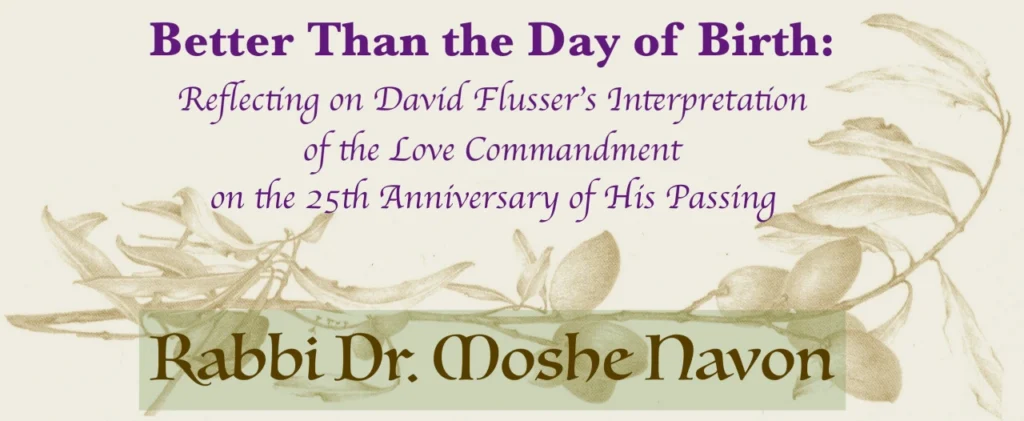
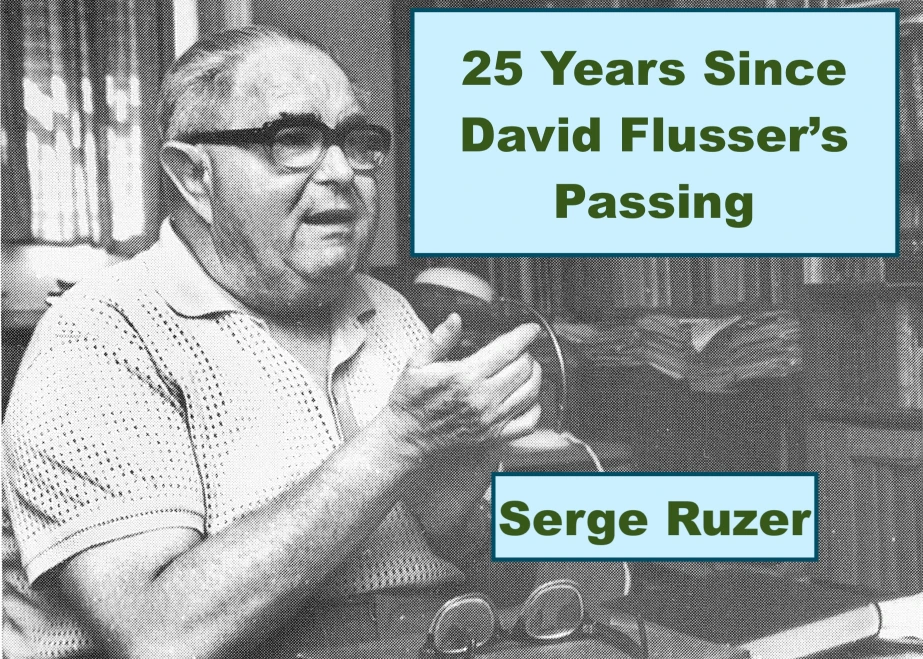
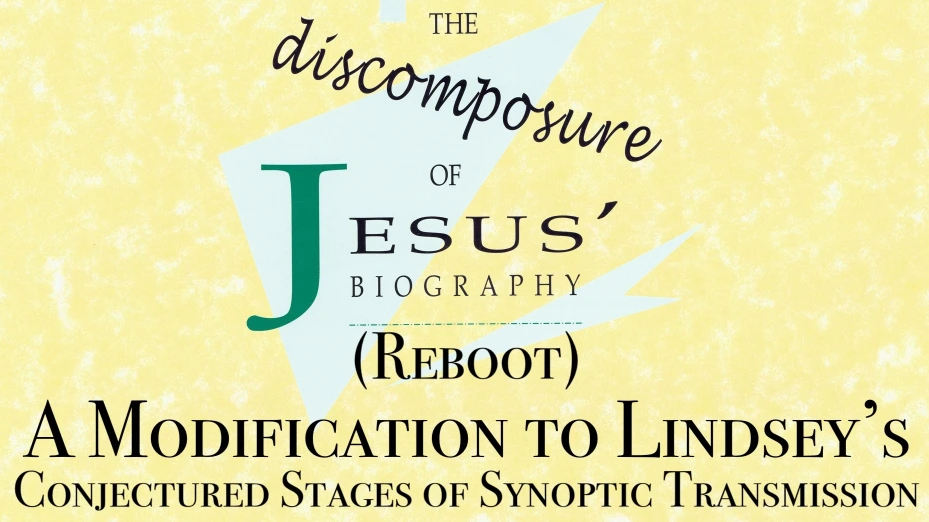

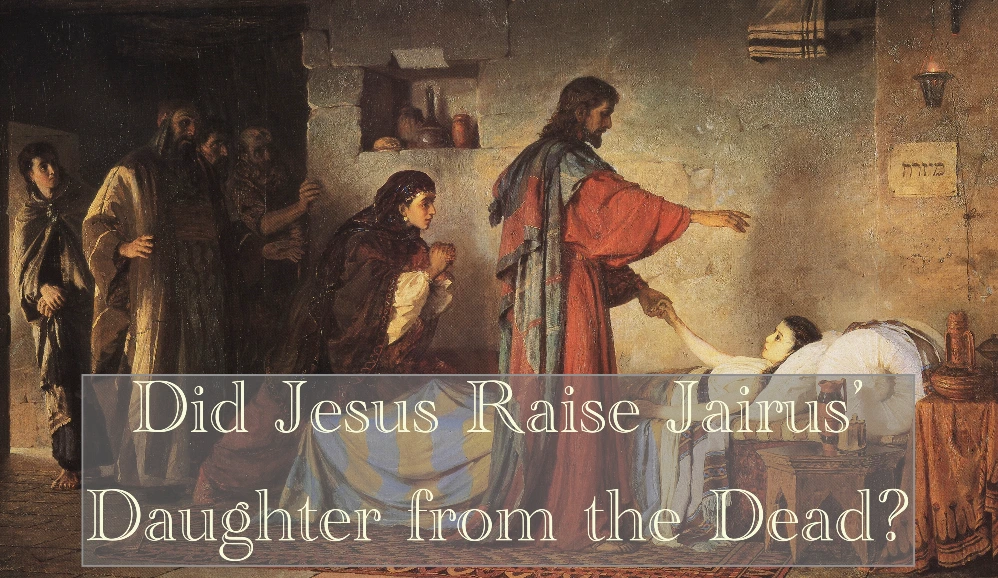


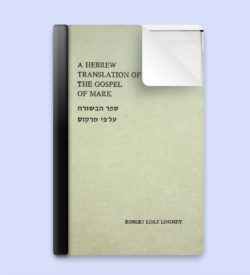




Comments 1
I am studying Abba in preparation for a sermon so thank you for this article. I am very surprised by the amount of debate over this name as I study. I do however agree with this statement from the article: These examples demonstrate that “Abba” was an address that could be used on formal occasions when grave matters (such as giving up one’s own life, as in the case of Isaac) were being discussed. This would certainly be fitting for Jesus using Abba in his prayer in the Garden of Gethsemane.